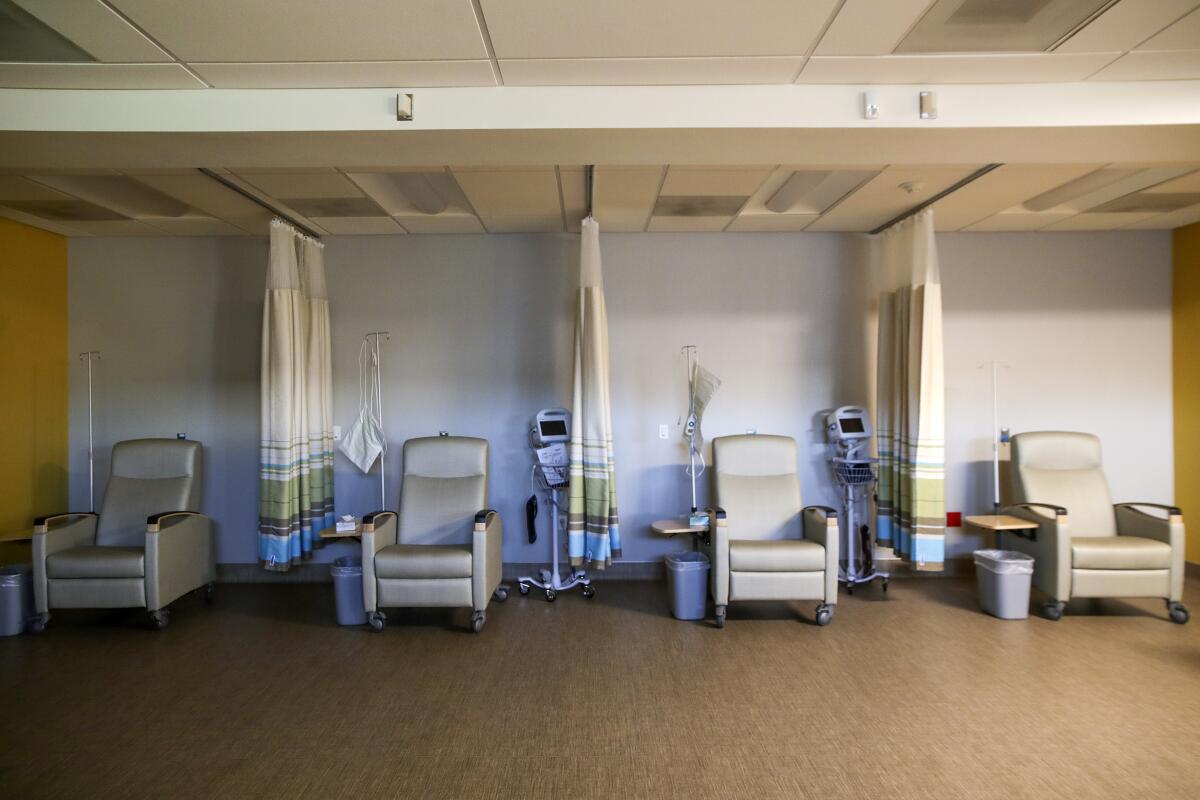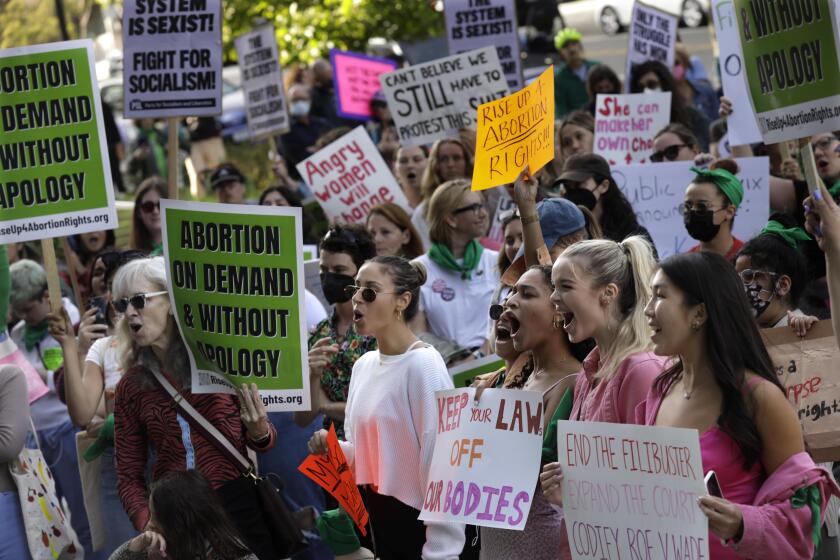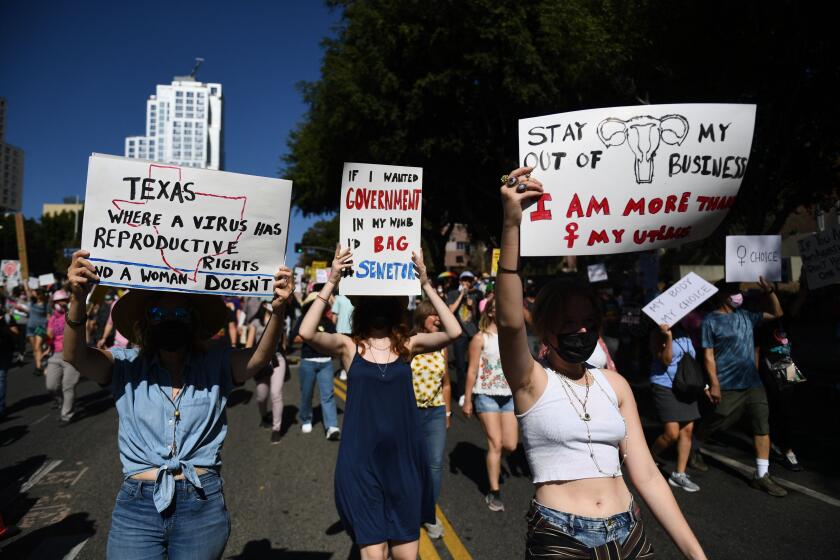California will see rush of people from out of state seeking abortion care, study says

- Share via
California will play a key role in providing abortion services to people living in states where the medical procedure is banned or severely limited after the overturning of Roe vs. Wade, according to a recent report from UCLA.
Between 8,000 and 16,100 more people will make the journey to California each year for abortion care, and many will come to Los Angeles County, the UCLA School of Law’s Center on Reproductive Health, Law, and Policy said in a study released this month.
The U.S. Supreme Court last week reversed the landmark 1973 decision that guaranteed abortion rights under the Constitution. Thirteen states were ready to effectively ban abortion almost immediately after the decision was announced through “trigger laws,” and more states are following in the same direction, according to health care providers. In all, 26 states are expected to ban or severely restrict access to abortion.
But access to abortion in California will continue to be protected under state law. Last week, California Gov. Gavin Newsom along with Washington Gov. Jay Inslee and Oregon Gov. Kate Brown announced a united effort to protect access to reproductive care.
That makes California a safe haven for out-of-state patients, according to the UCLA study, which was put together after the leak of a draft decision from the Supreme Court last month that signaled the reversal of the nearly 50-year precedent on abortion.
With the decision official, Los Angeles County could see 500 to 1,000 new patients seeking abortion services each year, said Brad Sears, executive director of UCLA’s Williams Institute and study co-author.
“Those are big numbers that people and the county are going to have to consider,” Sears said.
Here’s everything you need to know about the U.S. Supreme Court’s decision on Roe vs. Wade.
Last month, the Los Angeles County Board of Supervisors signaled its support for a pilot program that would make the county a safe haven for out-of-state people seeking abortion services.
On Tuesday, L.A. Councilmember Nithya Raman introduced a motion that would ban city resources from being used to detain anyone seeking, performing or aiding in abortion care or to cooperate with out-of-state investigations related to abortion.
“As we move forward in this new reality, we must ensure that Los Angeles acts as a sanctuary city for those seeking or assisting abortion care from outside our borders,” Raman said in a statement.
Many of those coming to California for abortion care will be women of color, uninsured, live in states without Medicaid expansion and lack access to medical resources such as abortion medication, according to the report. They will be more likely to need to travel longer distances and face medical complications, the report said, though people with more economic and social resources would have the means to travel for abortion services.
For someone living in Texas, where abortion is banned, it might be easier to fly to Los Angeles International Airport than to drive to a neighboring state, the study said, and some people could choose to have the procedure in a state farther from home for privacy reasons.
States will now be permitted to ban abortions for the first time since the landmark Roe vs. Wade decision in 1973. What does this mean in California?
Pregnant minors may be more likely to travel to California because state law does not require parental consent for abortion care, the study noted.
Still, the makeup and number of people who will travel to California is up in the air.
“Our report is based on data and prior research,” Sears said. “We are predicting the future, so we don’t know everything.”
Jessica Pinckney, executive director with ACCESS Reproductive Justice, said people of color, those from low-income communities and immigrants who lack legal status are often the ones who need the most assistance when it comes to accessing medical care.
Pinckney’s nonprofit helps pay for airfare, travel expenses, hotel accommodations and other costs for people seeking abortions. It also offers volunteers to drive women to a local clinic in a state where abortion is legal or grants to account for missed work and child-care costs.
There are many variables involved, Pinckney said, but the hope is that the nonprofit can put people in touch with someone who can help.
“Every person’s needs are different. There’s not just one specific way we provide practical support,” Pinckney said. “In this particular moment, there are a lot of people who can’t leave their state.”
More to Read
Sign up for Essential California
The most important California stories and recommendations in your inbox every morning.
You may occasionally receive promotional content from the Los Angeles Times.













